The 2015 Fuller Challenge announces six finalists
By Bustler Editors|
Monday, Sep 28, 2015
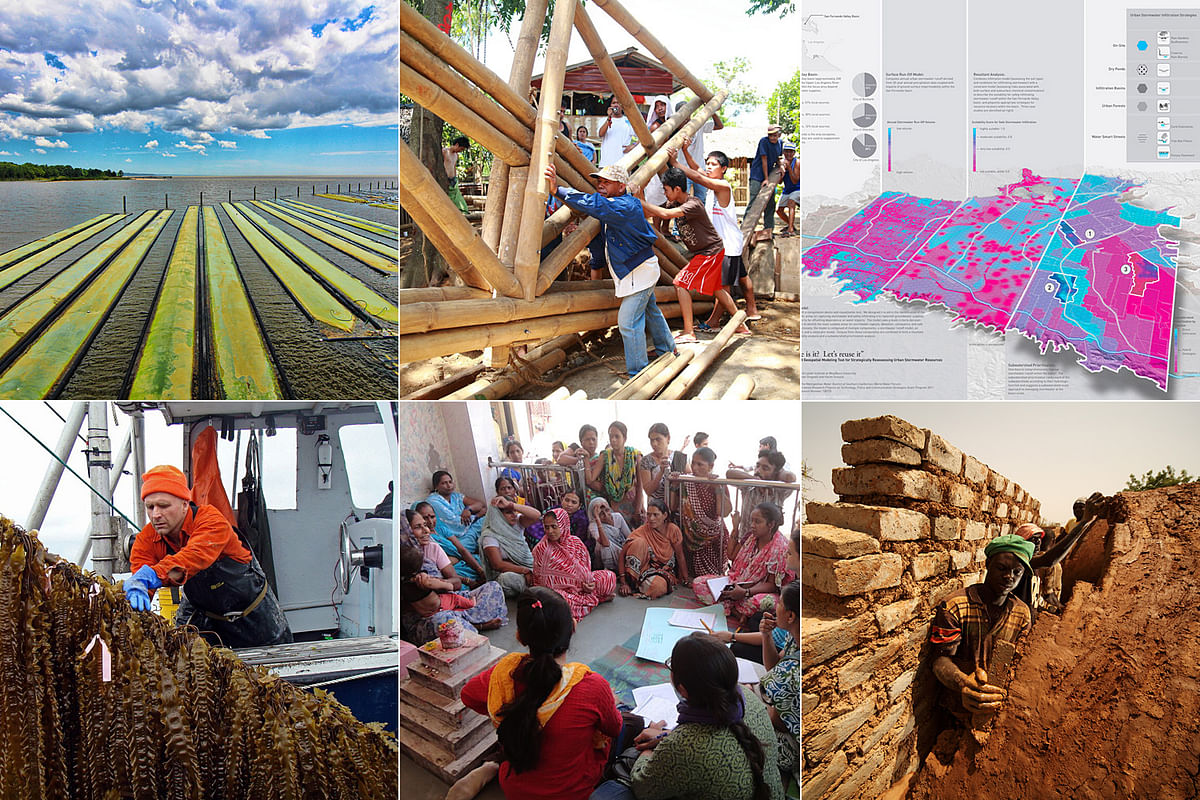
Related
Six finalists were announced today for this year's installment of the prestigious Fuller Challenge. From over 400 entries, these finalists were chosen to move on to the deliberation phase, from which the final winner is selected to receive the $100,000 grand prize toward the implementation of the proposal.
2014 Fuller Challenge Video from Buckminster Fuller Institute on Vimeo.
Following in the great legacy of Buckminster Fuller's urgent call for a design-science revolution "to make the world work for 100% of humanity, in the shortest possible time, through spontaneous cooperation, without ecological offense or the disadvantage of anyone," the annual challenged invites architects, designers, scientists, activists and other visionaries to submit "innovative solutions to some of humanity’s most pressing problems."
Check out the 2015 finalists below.
ALGAE SYSTEMS
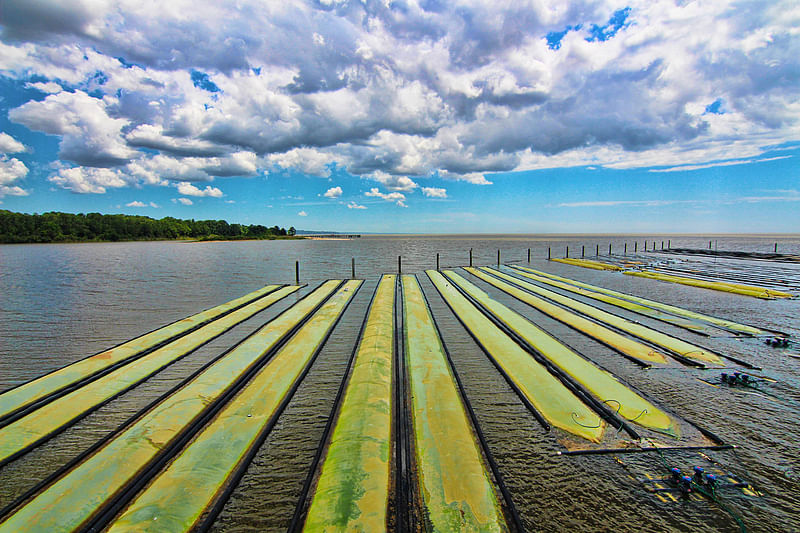
Project summary: "Inspired by Buckminster Fuller’s assertion that “pollution is nothing but resources we’re not harvesting,” Algae Systems uses a closed-loop, systemic approach to generate value from wastewater, providing a crucial, economically and environmentally sustainable service. Algae Systems integrates a suite of technologies into a process that grows native algae species to provide cost-effective wastewater treatment, removing CO2 from the atmosphere and yielding only clean water, carbon-negative bio-fuels, and fertilizers as its end products. The process is currently demonstrated at commercial scale in Daphne, Alabama and is in negotiation for deployment in Jamaica, Brazil, Mexico, and Honduras, with goals to disseminate the service worldwide."
For further project info, click here.
COMMUNITY ARCHITECTS NETWORK
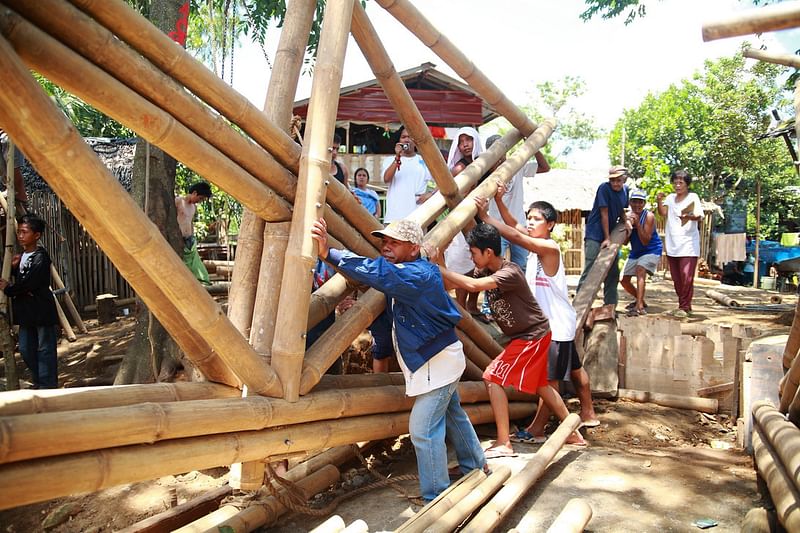
Project summary: "The Community Architects Network (CAN) operates by their motto: “Let the people be the solution,” seeking to empower people throughout Asia to become the designers of their own development. Founded in 2010, CAN is a network of architects, planners, builders, engineers, lecturers, and volunteers collectively building community-driven processes of participatory design, planning, and development in 19 countries, so far. CAN sustains and amplifies a paradigm shift toward participatory design and planning by bridging the divide between “experts” and local people. Over the years, CAN has systemically disseminated useful techniques for participatory design including surveying, mapping, financial planning, and construction management. CAN has evolved the capacity to legitimize local knowledge and drive community-led solutions in the face of heavily restrictive policy regulations, institutionalizing grassroots planning and achieving comprehensive change for communities at various scales."
For further project info, click here.
DRYLANDS RESILIENCE INITIATIVE AND HAZEL
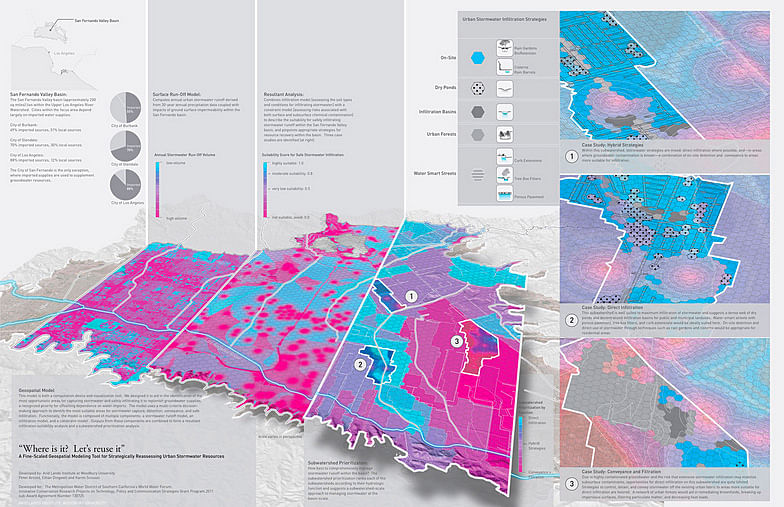
Project summary: "The Drylands Resilience Initiative has produced HAZEL, a powerful digital modeling tool that supports coordinated, scenario-based whole systems thinking and decision-making for water-smart urban design. HAZEL, when completed, will allow stakeholders to evaluate infrastructure, building projects, and their supporting ecosystems using precise data on hydrologic functions. It will allow in-depth, data-based systemic evaluation of urban design choices that couple human and natural systems, measuring hydrologic interactions and feedbacks between these systems at various scales and time horizons. This technology will allow the optimization of the hydrologic function of the built environment, encouraging small-scale distributed water infrastructure that respects cultural and biophysical attributes of communities and watersheds, potentially uncoupling the water-energy nexus."
For further project info, click here.
GREENWAVE
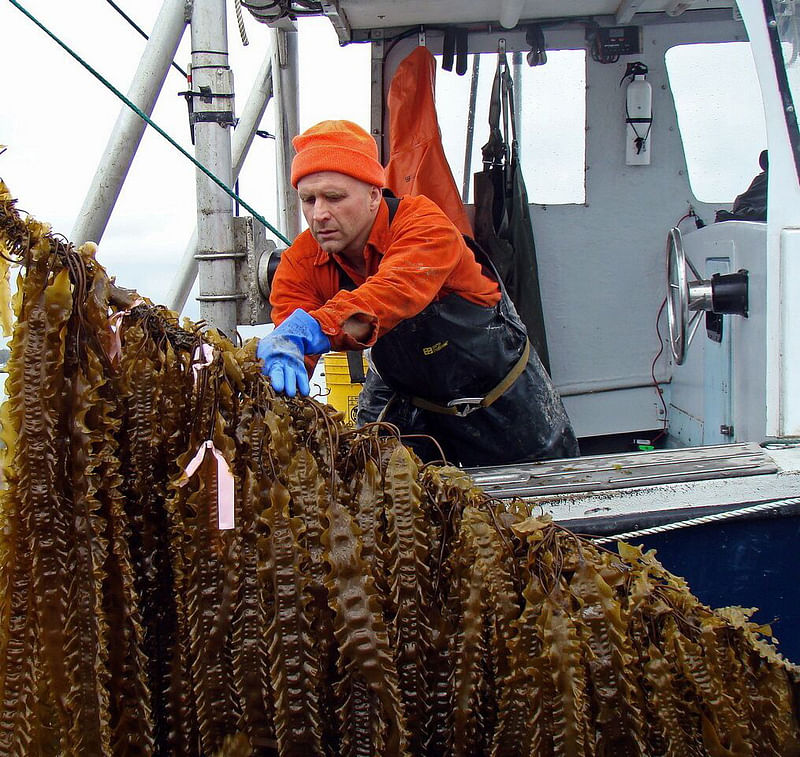
Project summary: "GreenWave is a non-profit organization working to restore ocean ecosystems and transform fishers, our last ocean hunters, into restorative ocean farmers and stewards of their local waters. Through the scaling and replication of their revolutionary 3D Ocean Farming system, economic and ecological restoration occur hand-in-hand, as highly productive ocean farms create jobs, filter ocean water, and restore biodiversity. With 2 operational farms in New England and 10 more set to open in the next year, GreenWave’s open-source model will allow coastal communities worldwide to adopt their 3D Ocean Farming system."
For further project info, click here.
MAHILA HOUSING SEWA TRUST
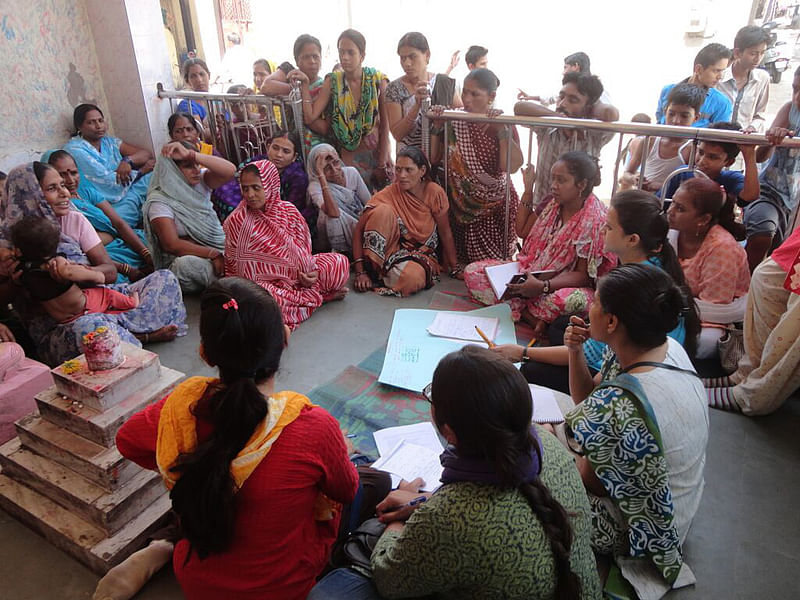
Project summary: "Mahila Housing SEWA Trust (MHT) creates a unique socio-technical partnership between communities and stakeholders, integrating traditional knowledge with modern technologies in order to devise multi-layered solutions to climate change impacts for poor urban dwellers. Founded on decades of work in sustainable community development and, in particular, women’s empowerment, MHT’s Climate Resiliency Project addresses vulnerability to water stress, flooding, and health risks in urban communities across four states of India. Inspired by Buckminster Fuller’s call to make the world work for 100% of humanity through the application of design science, the project will facilitate dialogue between vulnerable populations, government officials, and technical experts in order to adapt appropriate technologies into local climate change coping mechanisms."
For further project info, click here.
THE NUBIAN VAULT PROGRAMME
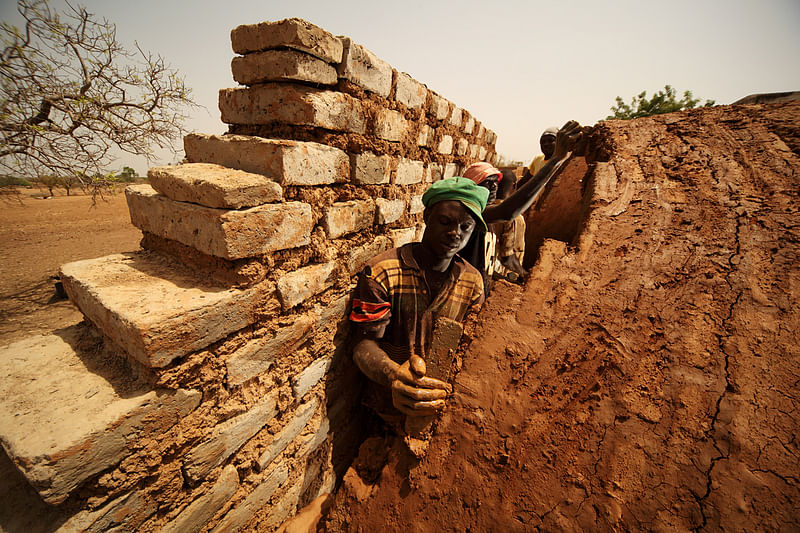
Project summary: "The Nubian Vault Programme (AVN), a Fuller Challenge Semi-finalist in 2012 and 2014, has demonstrated a remarkable capacity to adapt and replicate its sustainable housing program, now deployed throughout 5 African countries. Aiming to create comprehensive change in human livelihoods while addressing the critical need for housing across the arid Sahel region of Africa, the program integrates its ecologically sustainable, time-tested Nubian Vault construction technique into local economic circuits, relying entirely on local labor and raw materials, creating autonomous markets for local entrepreneurs, and successfully making a previously unsustainable housing system obsolete."
For further project info, click here.
The six finalists are now heading to the Fuller Challenge Conferring Ceremony in Brooklyn on November 12 to present their work to a large live audience.

Share
0 Comments
Comment as :